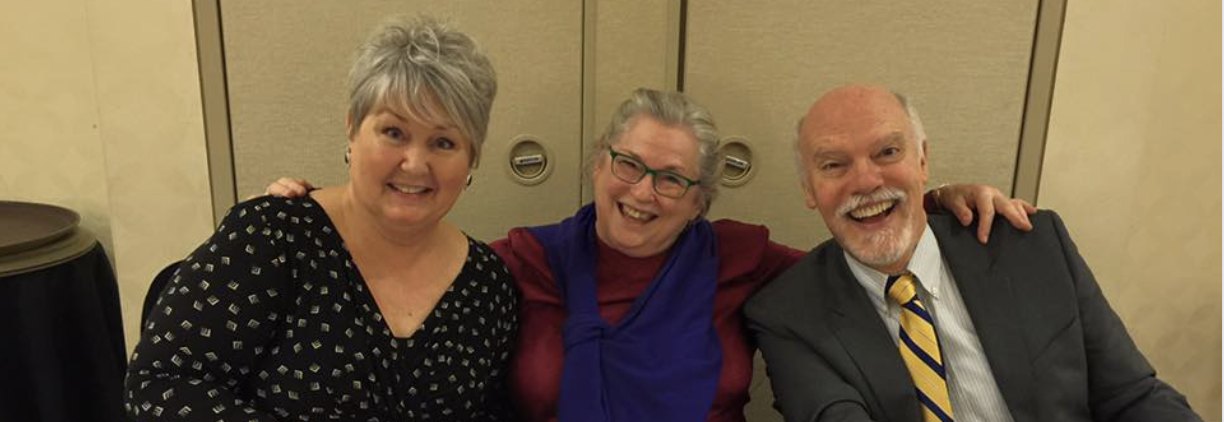Don’t be the nice judge
Adjudicators for student vocal competitions or auditions usually fall into one of three categories.
The Nice Judge
The Mean Judge
The Neutral Judge
For years, I prided myself on being the Nice Judge. I greeted each singer warmly and tried to give them my full attention and energy. I smiled like a proud mom at a kindergartner's tee ball game. Sometimes, after an audition, I'd overhear a singer in the hallway talking to friends. "Oh! There's the nice judge. She really liked my performance." I'd feel a twinge of guilt if I hadn't passed that singer on to the next round of competition. At the end of the day, after exuding all of that "You've got this!" niceness, I'd be exhausted.
My goal to be the world's nicest, fairest, most attentive judge came from years of experiencing the Mean Judges. You know them. Judges who scowl from the moment you enter the room, judges who look at their watch repeatedly, judges who give your resume or repertoire sheet a cursory glance and make weird sighing noises (Ugh. Not "Je veux vivre" again!), judges with smoking pencils who launch into a barrage of written critiques and never look up during your Academy Award winning performance. "Look! I'm emoting! I'm telling a story! I'm gesturing! I'm not a recording! I'm right in front of you!"
As a performer, I eventually became better at ignoring the judges. The more immersed I became in my own singing and story telling, the better I sang. After reading Meribeth Bunch Dayme's 1999 book Creating Confidence: How to Develop your Personal Power and Presence I realized that I was the problem, not the judges or audition panel. As a performer, I had been giving away my personal power and focusing way too much effort in pleasing the panel or deciphering their actions, smiles, and grimaces. Still, I was determined to make up for the Mean Judges bad behavior by being the Nice Judge.
After working with Meribeth Dayme and her joyful CoreSinging®️ approach to singing, teaching and energy, I realized that my intentional niceness and positivity may actually have weakened the energy field of the singers I adjudicated. I was inadvertently focusing their energy on me, away from their own performances! Recently at a NATS conference, speaker Lynn Helding (author of The Musicians Mind) confirmed that the mind cannot multi-task. You can do one thing at a time. Every time a singer shifts their focus from their own performance to the judge's reaction, they are taken out of flow, quickly switching back and forth.
My goal now as an adjudicator is to be the Neutral Judge. I'm here, I'm pleasant and professional. My job is to listen and immerse myself in your performance and give you some helpful praise and critiques. I will give you my full attention as you walk across the stage and introduce your song. I will listen to your opening phrases before immediately starting to write comments. Yes, I will still laugh spontaneously when you are funny. I may still have sad puppy eyes if your song is genuinely touching. (I can't help it!) But I am not deliberately cheerleading and distracting with my reactions. This is your moment to perform with presence and confidence.
My judging mantra is Neutral is better than Nice or Nasty!
Cynthia Vaughn
Mean judges! Fun with my colleagues Susan McBerry and Craig Tompkins, Adjudicators for Northwest Region NATSAA competition, Seattle WA 2016
Nice judges! Fun with my colleagues Susan McBerry and Craig Tompkins, Adjudicators for Northwest Region NATSAA competition, Seattle WA 2016
Resources:
The Musician's Mind: Teaching, Learning, and Performance in the Age of Brain Science by Lynn Helding, Rowman & Littlefield, 2020
Creating Confidence: How to Develop your Personal Power and Presence by Meribeth (Bunch) Dayme, 1999, Kogan Page (out of print). Much of the material was later adapted for:
The Performer's Voice: Realizing Your Vocal Potential by Meribeth Dayme, 2005, W.W. Norton & Company
The Essentials of CoreSinging: A Joyful Approach to Singing and Voice Pedagogy by Meribeth Dayme, edited by Cynthia Vaughn and Matthew Hoch, Rowman & Littlefield, 2022


